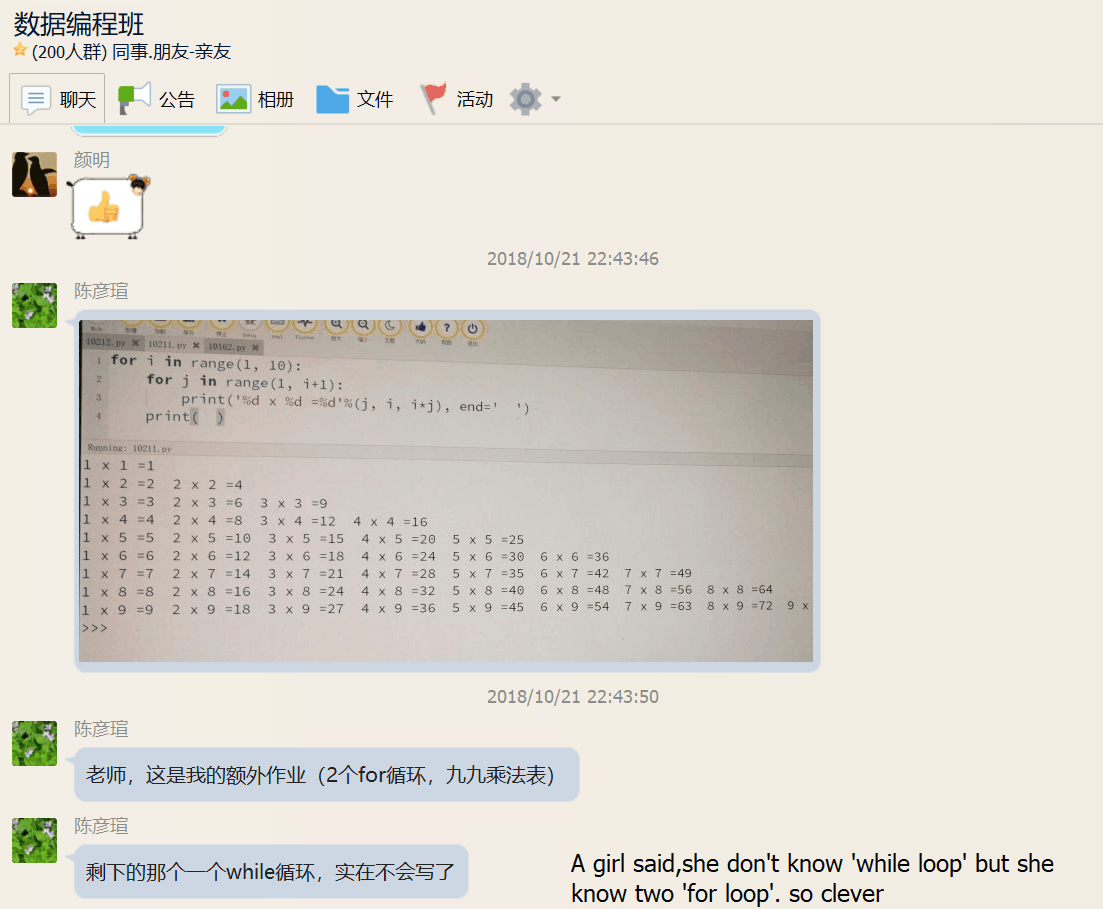Nǐ hǎo Mu! 你好穆!
Thanks to the efforts of volunteer teachers, young Chinese students are using Mu to learn Python.

My Chinese friend explains,
“I am a programmer in Hefei China, my colleagues and I give Python classes to more than 20 children every Tuesday afternoon. (A total of 14 weeks.)
This is a course of interest for the students who is interesting with programming, it’s free and we are volunteers. We have a plan to teach Python, from the base to the high, not that high.”

He goes on to explain how learning to code is making a big impression of some of his students and their families.
“The little boy in the [following] photo inspired me, he is very clever and he can answer almost every problem in class.
This boy father is so seriously to this class, he find a app which can coding in iphone, and he learn it himself to teach his son after school.
My first baby is coming soon, I think may be I should learn from him, you know he has no experience in programming and in his daily job there is no computer in front of him. Father’s love is great and will drive us to do many things. One father is more than a hundred schoolmasters.”

I have to admit that I was deeply moved by this explanation. I was also amazed to see that the teachers and students use a sort of chat app for sharing and marking homework.

It makes me extraordinarily happy to know that our collective efforts in translating Mu for learners who don’t have English as a first language are paying off. I’d like to applaud the efforts of the volunteer teachers in China who are helping to nurture the next generation of Python programmers. Finally, I would like to wish their students (and parents!) the very best of luck when learning to use Python. You are learning a skill that will help you flourish in our modern technological world. Please keep up your efforts and, if you have time, keep sharing what you have been doing. Perhaps, in the future, you will speak at PyCon China.
I’m struck by how similar programming is to another passion of mine: music. Both are cross cultural and international endeavours. By sharing our code, learning from each other and telling stories of programming we bring our world closer together.
My Chinese friend ends by saying,
“Thank you for your work, Mu is so cool, Mu is best for us.”
I’m so pleased you think so! Thank you!
 Made With Mu
Made With Mu